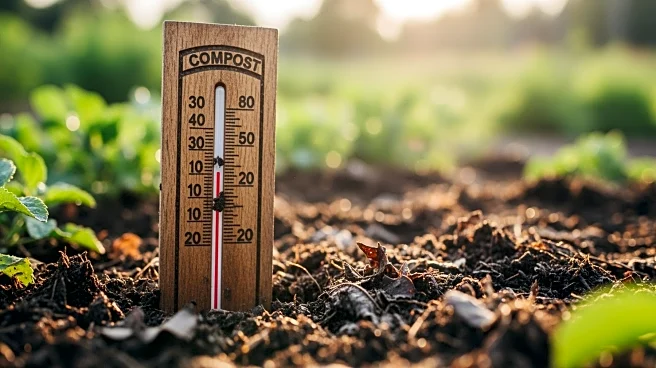What's Happening?
Time is a crucial factor in the composting of manure, as highlighted by recent agricultural studies. Proper composting requires sufficient time for aerobic bacteria to break down organic material, transforming
manure into a stable, nutrient-rich product. This process involves several stages, including heating, pathogen destruction, and maturation. Rushing the composting process can lead to unstable products that may harm soil health and crop yields. Effective composting practices are essential for sustainable waste management and soil improvement in agriculture.
Why It's Important?
Manure composting is a vital component of sustainable agriculture, offering benefits such as improved soil fertility and reduced environmental impact. By allowing adequate time for composting, farmers can produce high-quality compost that enhances soil structure and nutrient availability. This practice supports sustainable farming by recycling organic waste and reducing reliance on chemical fertilizers. Understanding the importance of time in composting can help farmers optimize their waste management strategies, contributing to environmental conservation and agricultural productivity.
Beyond the Headlines
The emphasis on time in composting highlights broader challenges in sustainable agriculture, such as balancing efficiency with environmental stewardship. As farmers seek to improve waste management, they must consider the long-term impacts of their practices on soil health and ecosystem balance. The adoption of effective composting techniques can also influence public perceptions of agriculture, promoting environmentally friendly practices. This focus on time underscores the need for ongoing research and education to support sustainable farming initiatives.










